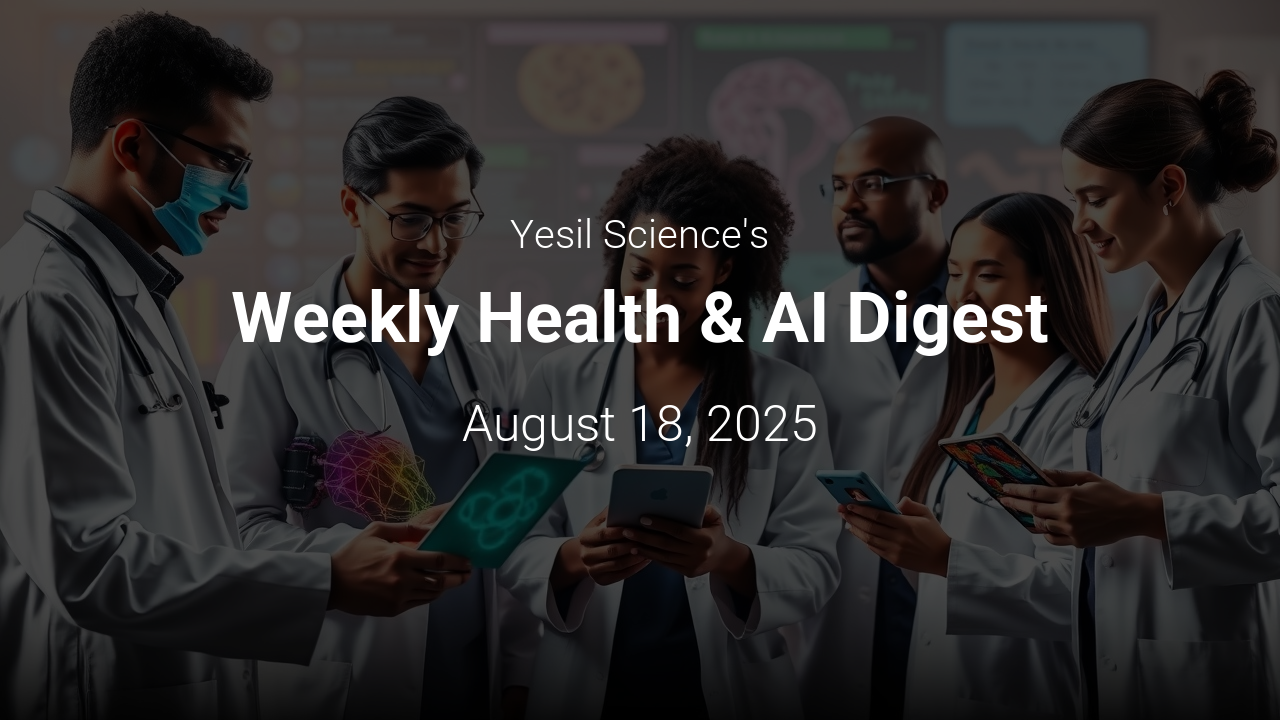Here are the latest breakthroughs in health & AI (August 18, 2025 week)
🔹 Reshaping Organizational Culture in Pathology.
“Transforming Pathology Culture: Emphasizing collaboration, AI, and diversity for enhanced diagnostic accuracy and team growth. 📊🤝”
——-
🔹 Automatic Image Recognition Meal Reporting Among Young Adults: Randomized Controlled Trial.
AI Meal Reporting: 86% accuracy in dish recognition vs. 68% with voice input. Significant time savings noted! 📱🍽️
——-
Exploring AI’s impact on emergency nursing support during explosive attacks: key findings from Seyedin et al. 📊🤖
——-
Generative AI in medical imaging: synthetic datasets enhance diversity, privacy, and workflows. Key challenges remain. 📊🩺
——-
📈 Retinoblastoma biomarkers research shows steady growth, with China leading publications. Key hotspots include liquid biopsy and AI integration. 🔬
——-
🔹 Making manual scoring of typed transcripts a thing of the past: a commentary on Herrmann (2025).
Automating speech intelligibility scoring with NLP models shows 2-4% accuracy improvement over traditional methods. 🤖📊
——-
Machine learning enhances bacteremia diagnosis using Sysmex XN analyzer: AUC 0.768, sensitivity 73.6%, specificity 67.9%. 📊🔬
——-
Passive sensing & ML enhance mental health monitoring. 42 studies show 92.16% accuracy in anxiety detection. 📊🧠
——-
🔹 Artificial intelligence across the cancer care continuum.
AI enhances oncology from risk assessment to treatment, improving accuracy and personalization. Key challenges include validation and data security. 🤖🎗️
——-
🔹 Analysis and Mapping of Machine Learning in the Context of Diabetes.
Machine learning in diabetes research: 5,222 studies analyzed, USA leads in publications. 📈🤖
——-
AI boosts pelvic X-ray accuracy by 8% and cuts reading time by 57% in trauma assessments. 📈🩺
——-
AI in Medical Imaging: Economic Benefits & Equity Challenges 📊🤖
——-
Deep learning enhances ccRCC diagnosis with 96.67% accuracy, revealing TME’s role in immunotherapy response. 📊🧬
——-
🔹 An adjuvant database for preclinical evaluation of vaccines and immunotherapeutics.
New adjuvant database enhances vaccine evaluation with transcriptomic data, predicting efficacy and toxicity across 25 adjuvants. 📊💉
——-
Celecoxib may reduce capecitabine-induced hand-foot syndrome risk by 49%. NLP effectively identifies HFS in clinical records. 📊💊
——-
🔹 Online Self-Referral for Midwife Appointments Now Available for Pregnant Women in England
Online self-referral for midwife appointments is now available for pregnant women in England. 🌼 This simplifies access to maternity care. 🏥
——-
Fecal microbiota impacts lung cancer immunotherapy response. Key taxa identified: Bacteroides caccae, Prevotella copri. 📊🦠
——-
🔹 Integrating mHealth Innovations into Decentralized Oncology Trials.
Integrating mHealth in oncology trials boosts patient engagement and data collection. 📱💉 Key for equitable access!
——-
That’s a wrap for this week’s digest! Stay tuned for more health & AI updates. 🚀💡
#HealthAI #TechNews
